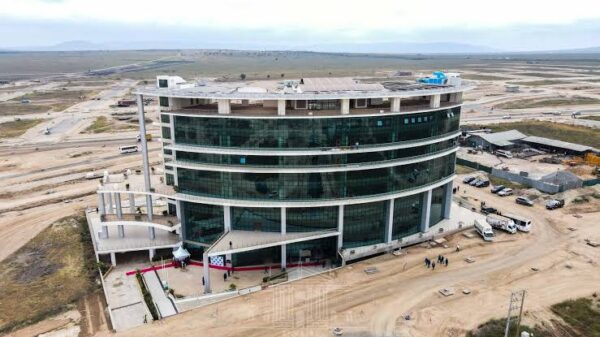MOMBASA, Kenya, Mar 31 – Telecommunication solutions firm Safaricom has disclosed that it will seek permission from the Communications Commission of Kenya (CCK) to start testing 4G technology in the country.
Safaricom Chief Executive Officer Michael Joseph said following the success of 3G on which they have an estimated 3.5 million customers, they intend to roll out the new service which will enable their customers to enjoy faster internet speeds and downloads.
“The reason why we are looking at testing 4G is that it is a natural growth from 3G as it gives you more bandwidth and more speeds. There’s demand out there but the challenge now is getting the price of a 3G phone down to come down,” he said.
Safaricom is the only network operating the 3G technology in Kenya which although it acknowledges is a very costly venture, reckons that it has the potential to give them good returns. Currently it has 500 base stations across the country and intends to set up another 500 this year to enable it play a role in the mobile data revolution.
“It (4G technology) all depends on when we get the spectrum because it operates on different frequencies but hopefully it will be this year,” he added while downplaying any protests that might be staged by his competitors some of whom are yet to introduce the 3G services into the market citing the spectrum costs of Sh1.9 billion which is prohibitive.
Contrary to speculation across the world that such technology would not be ideal for Africa, Mr Joseph said the continent was ready for the rollout of such infrastructure which can provide connectivity and bring government services closer to the people.
“I believe that Africa is more ready for 4G than any other part of the world because we need it to bring many benefits for services such as e-voting, e-learning, e-medicine to the people,” he emphasised.
Speaking during the opening of the Connected Government Summit in Mombasa, the CEO said his firm will this year invest Sh23 billion to expand and upgrade its data infrastructure as it gears up to offer reliable services to all Kenyans.
“In two years time, our network will be completely IP (Internet Protocol) based to enable us offer high quality and cost effective services as well as faster speeds,” he said while pointing out that last year, they pumped in Sh21billion in infrastructure development.
Despite having huge capacity on both TEAMS and SEACOM fibre optic cables, the company is still relying on satellite connection for redundancy. Mr Joseph said this was partly due to the five year contracts they have with the providers and secondly because the two submarine cables landed in Mombasa at one point which can make the vulnerable.
To address this situation, he said they were negotiating with the government to connect to Namanga and then wait for Tanzanian operators to bring their cables to the other side of the border from where Safaricom can connect to Dar-es-salaam. This he pointed out, is what would give them the confidence to release the expensive satellite capacity.
Once this is done, it will see costs of connectivity come down and this coupled with access to affordable equipment, would play a big role in bridging the digital divide in the country. Mr Joseph said the company was looking for a computer manufacturing company that would provide computers at a fee of approximately Sh15,000 ($200) which is within the reach of many Kenyans.
He pointed out that the cost of digital devices such as laptops and netbook was equally prohibitive thus the need to find affordable ways of bringing into the market equipment that are reasonably priced.
While underscoring Safaricom’s commitment to assist the government increase Internet penetration in the country, he disclosed that they have already established 450 digital villages to increase data penetration across in the country
However, he decried the lack of skilled technical support to assist in the maintenance, installation and those who can offer after sales services to their customers.
The CEO added that they were in talks with various universities to put up a special college that would train people on data technical support in order to achieve the dream of making Kenya a true ICT hub.
Speaking at the same forum, Information Minister Samuel Poghisio challenged investors to fully utilise the three fibre optic cables in the country and exploit opportunities in content, software and e-commerce development so as to change the way Kenyans consume ICT.
He observed that the country now has good infrastructure in place and all that remains is to make use of them to create employment opportunities and spur economic growth.
“We encourage our local ICT entrepreneurs to invest in coming up with innovation so as to create competitive advantage in the region and globally,” the minister said while assuring that together with other ministries, they were working to ensure they put in place good regulatory policies that can support such growth.
Participants heard that regulations have been formulated to govern partnerships between the two parties and they were therefore challenged to come up with ways of implementing projects that would help the country attain its long term development goals.
The conference which brought ICT players from the private and public sector provided a platform for collaboration, capacity building and knowledge sharing among the participants.


































